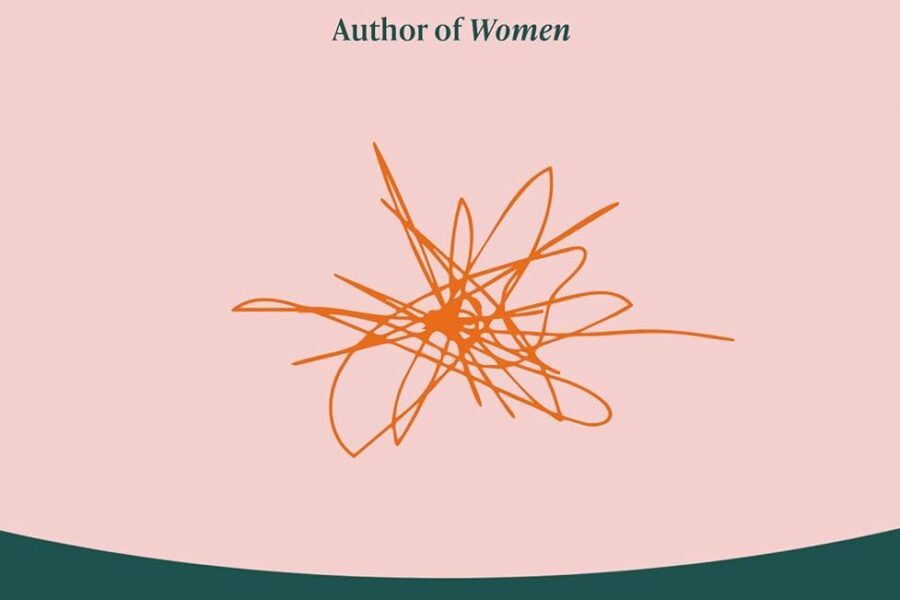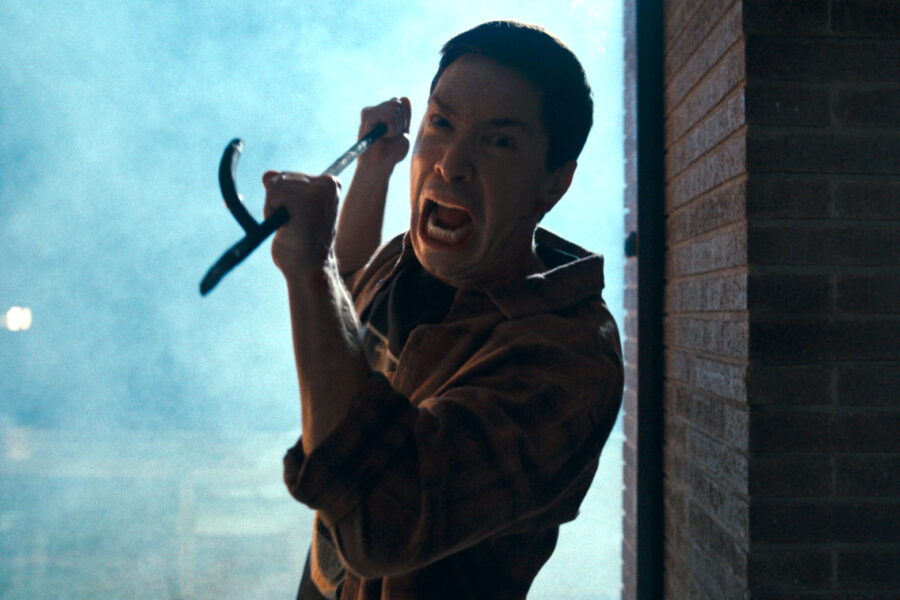
Set in the 1990s, Lucid, which had its world premiere at Fantasia Festival, follows Mia (Caitlin Acken Taylor, Pistol), a messy and frustrated art student who is struggling to pass a crucial point in the term. Her professor is hard to please and requires her to create “something with heart” in just one week. Feeling she lacks inspiration and is a terrible artist, Mia heads to the club where classmate Desdemona (Elaine Thrash Oliveira) lets her know about the expensive elixirs her godmother Syd (Vivian Vanderpuss, RuPaul’s Drag Race) makes. Customised to each individual person, it’s what she, Belladonna (Ayla Tesler-Mabe) and Nic (Jo Gaffney) use to get their creative juices flowing.
Syd gives Mia a new creation called Lucid, a loveheart sweet with the word printed in the middle, and tells her to take a nibble from it each night. She warns against eating it all at once, adding that it’s made with Tibetan snowdrops, used to help monks explore powerful lucid dreaming. “If you overdo it, you’re fucked. You’re opening a door here and I can’t be responsible for what comes through.” Syd also emphasises multiple times throughout the film that Mia has to face these blocks and do the work if she wants to overcome them. Naturally, Mia soon falls victim to peer pressure and eats the whole thing at once. This opens her up to memories she didn’t know existed, forcing her on a nightmare-fuelled journey of finding inspiration, meaning, and self-discovery.
Shot on both 35 and 16mm, Lucid is visually striking but, at times, narratively confusing. As an experimental film about a lucid dreaming drug bringing up mystifying memories, the film is intentionally disorientating with a surrealist quality. Mia’s memories and dreams blend into her daily life, blurring the lines between fiction and reality. Mia’s past remaining murky until the third act makes perfect sense, but I was often confused by simple things such as who certain characters were. While some answers were presented as the film progressed, I felt they should’ve come sooner. Other characters, such as Titiana (Lesley Marshall AKA LES66) and crew, didn’t seem to serve any real purpose other than to show up during Mia’s shift at Bitchin Chckn, shove a camera in her face, call her a “faceless drone with no dreams, nothing to offer the world,” and declare the world will end in the year 2000. Maybe revealing Mia’s worst fears and driving the punk aesthetic here is enough.

Directors Deanna Milligan and Ramsey Fendall, who expanded Lucid from their short film of the same name, lean heavily into the experimental and DIY punk aesthetic, complete with a superb soundtrack featuring original songs, captivating, hazy shots, and on-screen illustrations. At times, the film’s setting of an art degree reminded me of the film MFA, purely because art degrees seem exceptionally difficult. Bunny by Mona Awad also sprung to mind, especially because the novel expands into the surreal.
While Taylor gives a strong performance, Mia isn’t a very interesting character. Her creative blocks and past traumas are relatable, but she doesn’t have any compelling traits or attributes. Fortunately, she does embody the image of a punk artist: she spits, masturbates, wears holey t-shirts, and isn’t phase by leaving the house in yesterday’s smudged makeup. She also wears jacket customised with badges, patches, and other paraphernalia. She’s rebellious but it doesn’t really go anywhere outside of a few outbursts in class. Ultimately, Lucid presents some some experimental quirks and the occasional intrigue into Mia’s journey, but it doesn’t dig deep enough into how it affects her. The film gets lost in its own experimentalism; just when something is getting interesting, it’s gone. At 109 minutes, Lucid largely overstays its welcome. That said, its hypnotic quality and depiction of heavy themes can’t be understated. They are often captivating, even in their incoherence; the film just can’t sustain it continuously.




Leave a Reply